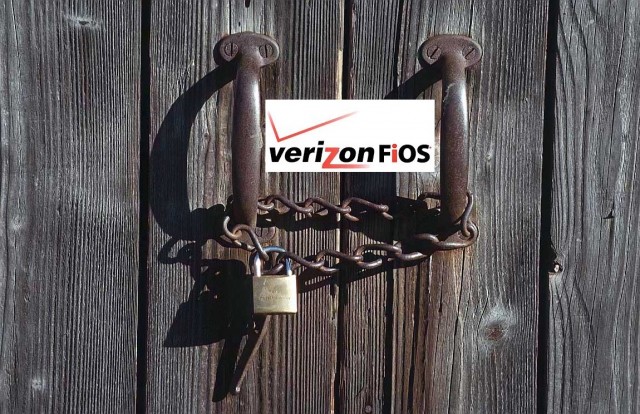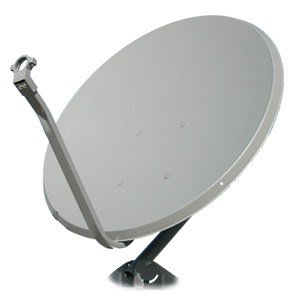
Verizon FiOS is off limits to rural customers. Wireless voice and satellite broadband is in your future.
Verizon Communications has big plans for its “miraculous” wireless home phone replacement which will soon find itself in rural homes across Verizon’s service area as part of a larger plan to dismantle rural America’s wired telephone network.
Just as company executives promised more than a year ago, Verizon wants to transition rural customers to fixed wireless phone service that could mean the end of wired broadband for millions of Verizon customers still using DSL.
Verizon senior vice president Tom Maguire told Communications Daily Voice Link is Verizon’s answer for customers it cannot easily transition to fiber optics. He is thrilled about the prospects of getting rid of deteriorating copper networks in favor of an inexpensive wireless alternative.
“I’m super jazzed about this because I think it will be good for everybody,” he said. “I think it’ll change a lot.”
For rural Verizon customers, the changes could be profound, dramatic, and not exactly a win-win scenario:
- No more wired phone service, which means medical monitoring, many home security systems, and inexpensive dial-up service that all rely on landline technology will be rendered unusable;
- No more unlimited use DSL service, no business broadband service, no credit card processing or other electronic business transactions that depend on a wired connection;
- No enforced quality of service standards, rate oversight, or guarantee of access to quality voice service;
- No prospect of advanced fiber optic FiOS services, including high bandwidth video and broadband.
Verizon is making it clear Fire Island and the New Jersey Barrier Island are just the first steps towards the retirement of copper, either in favor of fiber optics in high profit/low-cost areas or wireless in rural areas not worth upgrading.
Maguire claims Fire Island residents did not want the company to tear up yards or streets to replace its damaged copper wire network with newer technology like fiber. But Fire Island residents and administrators tell Stop the Cap! they were never asked. Instead, residents are being told Voice Link is likely their only option for traditional phone service on the western half of the island, and some customers are unhappy they will never get FiOS broadband upgrades Verizon says are financially untenable to provide.
Verizon has quietly tested Voice Link in Florida, giving customers the option of keeping their wired service or switching to the wireless alternative. But the test may have been stacked in Voice Link’s favor, as the choice was given to voice-only customers having chronic service problems with Verizon’s deteriorating copper wire network.
Going forward, many rural customers may not have a choice. For those who want Internet access, Verizon isn’t promising its wireless network is up to the task. Their suggested alternative?

Verizon’s solution for rural broadband.
Maguire acknowledged Voice Link customers won’t be able to fax or do certain activities, but he said the telco never pretended they would. Verizon won’t be offering data services with Voice Link, but if Fire Island customers want more options, they can potentially choose satellite, he said.
Maguire believes that customers living with a deteriorating copper landline network will gravitate quickly towards a wireless phone replacement.
Verizon arranged a blind test of Voice Link for 40,000 customers in another company’s territory with unbranded devices. When the copper wire network performed normally, customers preferred the quality of traditional landline service. But after it rained, the poorly maintained network made all the difference.
“The copper sounded like hell, it was noisy and static-y,” Maguire said.
Maguire did not say if Verizon blind tested whether customers preferred traditional landline service, Voice Link, or its fiber optic FiOS network.
Verizon hopes to begin introducing its Voice Link service in other markets as early as June.


 Subscribe
Subscribe Verizon Communications has filed separate requests with the New York State Public Service Commission that would report customers’ payment histories to credit reporting agencies, share your payment history with competing providers, and increase phone bills statewide to recoup expenses related to construction costs.
Verizon Communications has filed separate requests with the New York State Public Service Commission that would report customers’ payment histories to credit reporting agencies, share your payment history with competing providers, and increase phone bills statewide to recoup expenses related to construction costs. Late phone company payments appearing on a consumer’s credit report can be devastating to a consumer’s general credit score, which can affect credit lending decisions, home purchases, apartment leases, insurance rates, and employment prospects. Disconnected, unpaid accounts turned over to an independent collection agency may already appear on credit reports, but Verizon late-payers who still have service with the company
Late phone company payments appearing on a consumer’s credit report can be devastating to a consumer’s general credit score, which can affect credit lending decisions, home purchases, apartment leases, insurance rates, and employment prospects. Disconnected, unpaid accounts turned over to an independent collection agency may already appear on credit reports, but Verizon late-payers who still have service with the company  Other Service Charges and Rate Hikes:
Other Service Charges and Rate Hikes:
 More than six months after Hurricane Sandy did her handiwork on coastal New York, New Jersey and Connecticut, hundreds of residents are still getting phone bills from Verizon for phone and Internet service they have been without since Halloween.
More than six months after Hurricane Sandy did her handiwork on coastal New York, New Jersey and Connecticut, hundreds of residents are still getting phone bills from Verizon for phone and Internet service they have been without since Halloween. While large private corporations return profits to shareholders and avoid major infrastructure upgrades, publicly owned municipal providers are moving customers to carefully planned and budgeted fiber-to-the-home networks that offer service at speeds AT&T, the state’s largest telecom company, cannot touch.
While large private corporations return profits to shareholders and avoid major infrastructure upgrades, publicly owned municipal providers are moving customers to carefully planned and budgeted fiber-to-the-home networks that offer service at speeds AT&T, the state’s largest telecom company, cannot touch. SMU will spend $2 million to extend fiber service this year, decommissioning copper telephone wires and coaxial cable as it brings the new network online in different sections of the community.
SMU will spend $2 million to extend fiber service this year, decommissioning copper telephone wires and coaxial cable as it brings the new network online in different sections of the community.